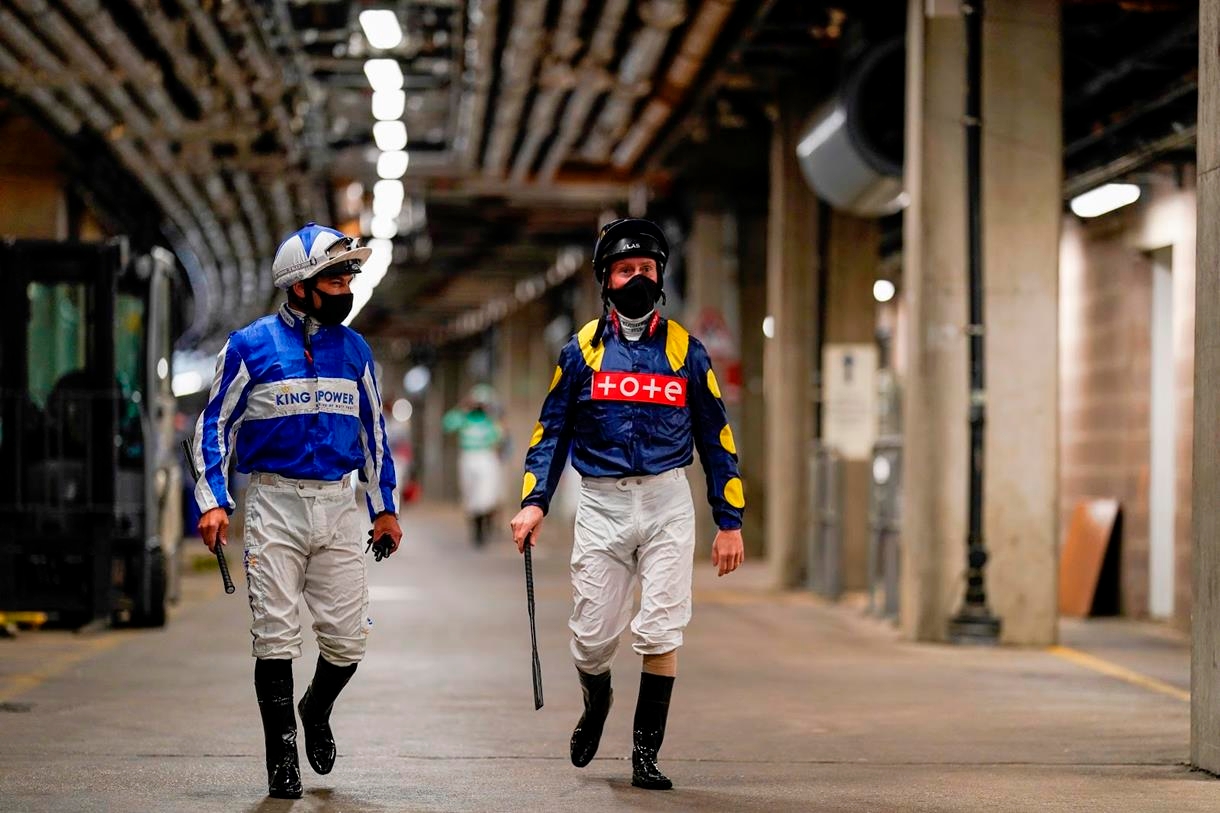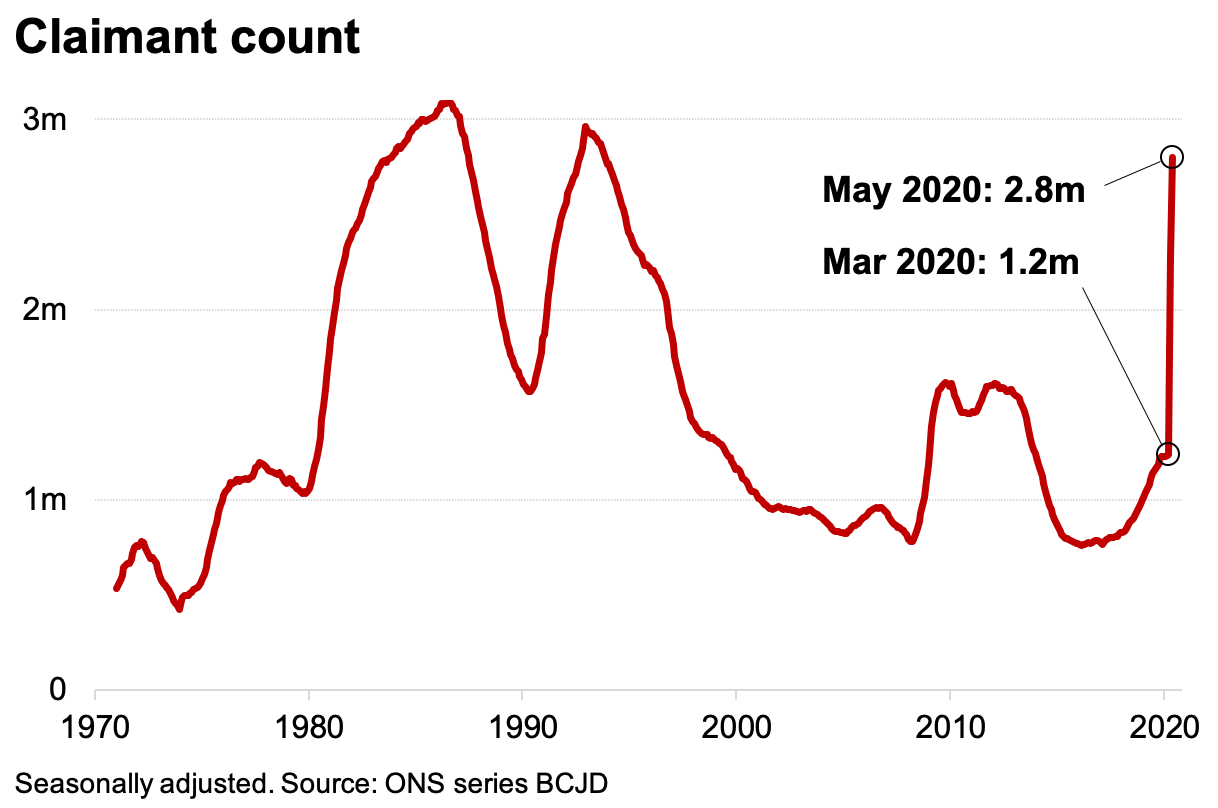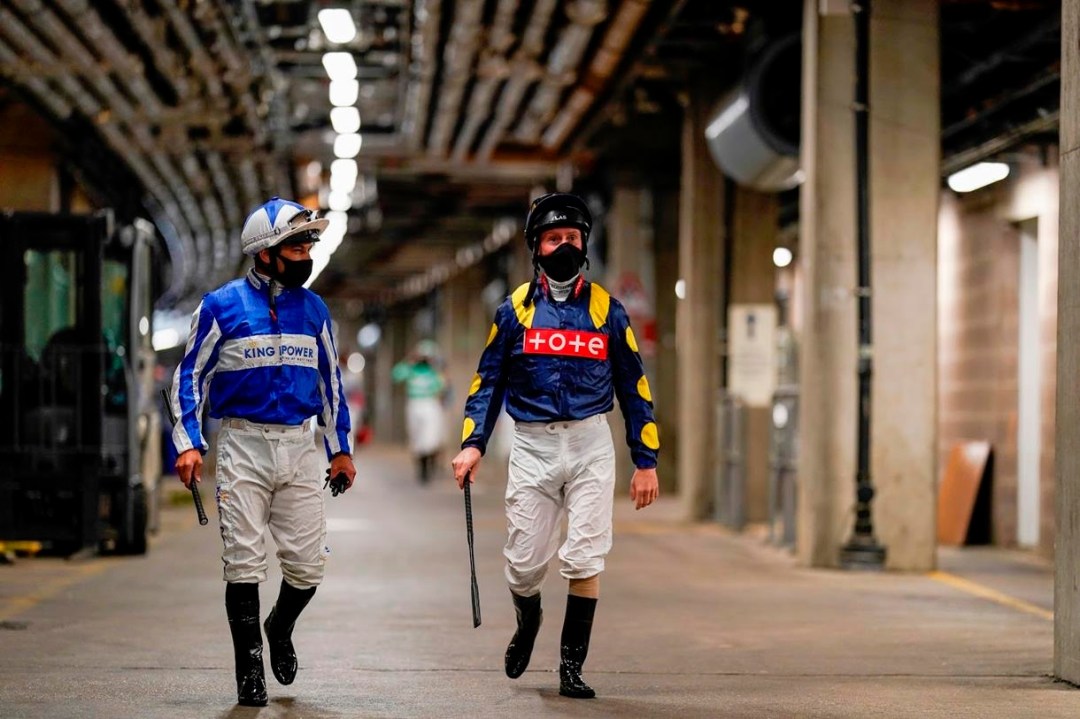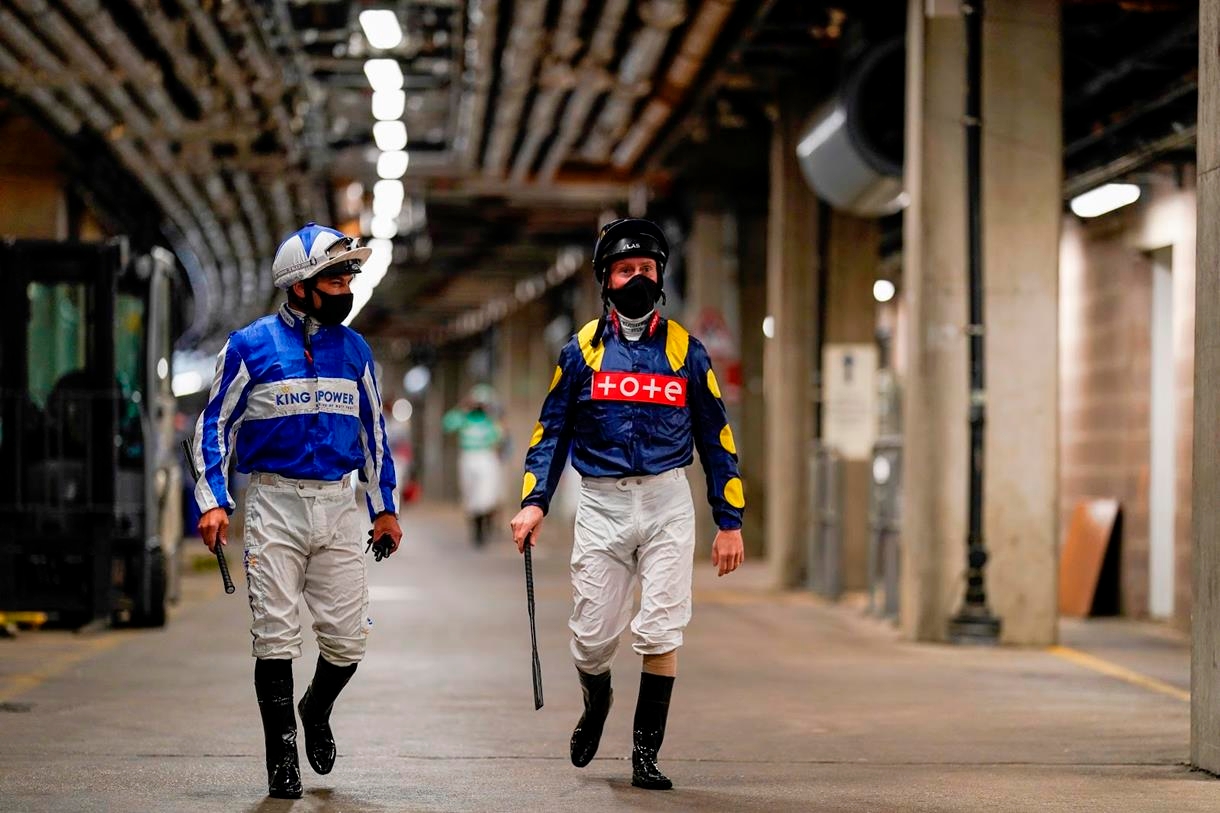The Spectator brings you the latest insight, news and research from the front line. Sign up here to receive this briefing daily by email, and stay abreast of developments both at home and abroad.
News and analysis
- Researchers at Oxford University have said that a £5 steroid can cut Covid-19 deaths by a third.
- The number of people claiming work-related benefits has jumped to 2.8 million while 600,000 people have lost their jobs since March. Kate Andrews has the details below.
- The Department for International Development is set to be merged with the Foreign Office, which will control the £14 billion aid budget. James Forsyth explains on Coffee House.
- The government has U-turned over its policy not to offer free school meals during the summer, now pledging £120 million to extend vouchers. Katy Balls has the details below.
- Downing Street has said that a review into the two-metre social distancing rule will be complete ‘in the coming weeks’. Scientists from Oxford University have said there is no scientific evidence supporting the rule.
- Four in ten pupils are not in regular contact with their teachers during lockdown while a fifth of school children are doing no work or less than an hour a day. Meanwhile secondary school pupils began to return this week – but 90% of students are getting less than two days a week in school.
- London has become the first region in England and Wales to see its death rate fall below the seasonal average since 13 March.
- The government spent at least £5 million on hydroxychloroquine tablets for clinical trials. The drug has previously been championed by Donald Trump.
- Royal Ascot begins today. This year’s fixture will be the first time that the Queen has not been in attendance during her 68-year reign.
- Greggs will reopen 800 stores for takeaway from Thursday.

‘I’m not allowed to invite you into my home.’
Research: £5 steroid could cut coronavirus deaths by a third
Could a cheap steroid be a life-saving treatment for Covid-19? According to Oxford University, the results of its recovery trial reveal that ‘low-cost dexamethasone reduces death by up to one third in hospitalised patients with severe respiratory complications of Covid-19.’ The clinical trial, which involved more than 11,500 patients across 175 NHS hospitals (of whom 2104 patients received the steroid) found that it ‘reduced deaths by one-third in ventilated patients… and by one fifth in other patients receiving oxygen only’. The treatment provided ‘no benefit’ to patients who did not need respiratory support, but could prove to be a game-changing treatment for those suffering more severely from the virus. Researchers are now working to publish the full details of the preliminary trial as soon as possible.
Commenting on the findings, Health Secretary Matt Hancock said: ‘I’m absolutely delighted that today we can announce the first successful clinical trial for a treatment for Covid-19. Thanks to the brilliant scientists at Oxford University, working with the NHS, funded by the government, we’ve been able to develop the science that shows that dexamethasone reduces mortality by between a sixth and a third. This is huge step forward and it’s because we’ve backed the science, and because we’ve taken an approach that’s guided by the science that we’ve been able to deliver this result.’
The furlough scheme holds off mass job loss, for now by Kate Andrews
Lining up graphs of the UK’s growth figures last week and its employment figures this week, you would struggle to believe the data was from the same decade, let alone the same month. Despite the economy contracting by a quarter in March and April, unemployment figures haven’t budged: 3.9 per cent for the month of April, unmoved from the month before, and more remarkably only up 0.1 per cent from the previous year. The employment rate remains surprisingly high too: 76.4 per cent, down 0.1 per cent on the previous month. Despite the shuttering of the economy, employment and unemployment continue to hover at record highs and lows, like they did before the crisis began. But look past the headline figures in today’s ONS data drop, and Britain’s employment status looks foggier. Indeed, some of the data doesn’t quite add up.
While the unemployment figure didn’t budge, the number of people registered on company payrolls fell by more than 600,000, while the number of hours people worked and the number of those temporarily away from work slumped as well. Meanwhile, the claimant count – a new, experimental measurement from the ONS that aims to calculate how many people are receiving benefits primarily because they are unemployed – has increased to 2.8 million: ‘a monthly increase of 23.3 per cent and an increase of 125.9 per cent, or 1.6 million, since March 2020.’ These numbers aren’t perfect – many registering for benefits will be doing so while employed. But the trends are worrying, revealing that while employment rates have yet to move, more people are working less or out of work altogether. While the unemployment figure has held overall – largely thanks to the furlough scheme – other indicators suggest there is much more pain to come. This doesn’t bode well for the coming months, when businesses are no longer able to furlough staff and will be asked to start paying contributions in August.
As we move into the summer and the scheme is slowly rolled back, nearly nine million furloughed employees will have the viability of their jobs put to the test: some employees will return to work, but many will not. And those who do lose their jobs may struggle to find new ones: vacancies have fallen to a record low, as companies put off hiring to avoid an uptick in their financial commitments. While many look towards October for the furlough cliff-edge, eyes must be kept peeled on the next few months as well. For many businesses, even a 5 or 10 per cent contribution to their employees’ costs will be too much. A clearer, and likely much more bleak picture will reveal itself soon: a surreal economic crash cannot be coupled with a low unemployment rate for long.
Let the socially-distanced games begin

In words
This disastrous lockdown can never be repeated, even if the virus returns.
– William Hague writing in the Telegraph this morning.
What the government’s U-turn on free school meals means for the Treasury by Katy Balls
This lunchtime, Boris Johnson performed a U-turn on free school meals over the summer holidays. Following a campaign led by the England striker Marcus Rashford calling for the free school meal voucher system for low-income families to be extended over the summer, a ‘Covid-19 summer school fund’ is to be set up which will see those eligible get a six-week voucher.
For many the big question isn’t ‘why has the government U-turned?’ but ‘why did the government take so long to U-turn?’. An increasing number of Tory MPs had come to see it as inevitable as the story looked set to dominate the news and attract criticism from all sides. The popularity of the personality pushing for this meant it was a story that had cut through well beyond the Westminster bubble. The issue was set to come to a head this afternoon with Labour pushing for a vote on it – that would have led to potential rebellions and embarrassing scenes for Conservative MPs. By moving now that has been avoided.
The change – and the unease in the party in the build-up to the U-turn – highlights a growing problem the Treasury faces as a result of its coronavirus response. Many Tory MPs questioned why the government was refusing to spend £120 million bringing in free school meals when they have spent record levels in recent months, which makes the sum seem a drop in the ocean by comparison. A similar argument was used by backbenchers in the build up to the NHS surcharge U-turn last month. Expect to hear it more in the difficult months ahead.
Read Katy’s full blog on Coffee House.
Global news
- New Zealand has recorded its first Covid-19 infections in 24 days after two arrivals from the UK tested positive for the virus.
- Some 1.7 billion people around the world suffer from underlying health conditions that could lead to severe complications from Covid-19.
- More than a million people have applied for tickets to Donald Trump’s presidential campaign rally in Oklahoma on Saturday, according to the president’s campaign team.
- The 2021 Oscars have been delayed by two months because of the pandemic.
- An entrepreneur is installing ‘rice ATMs’ around Vietnam to allow the country’s poor to withdraw bags of rice.
Datawatch: Unemployment claims

Our latest podcast
Coronomics
- Ikea will repay furlough payments to nine countries. The Spectator and Games Workshop have previously pledged to repay the UK government.
- Travis Perkins will cut 2,500 jobs. Jaguar Land Rover will cut more than a thousand jobs after the carmaker recorded a pre-tax loss of £501 million in the first three months of 2020. Some 75 jobs are under threat at the Titanic Visitor Centre in Belfast.
- Graduate job openings have dropped from 15,000 to 3,000 since the start of the year, with 100 graduates now vying for each position.
- Some 19 million Brits suffered from high levels of anxiety during the first weeks of lockdown, according to the ONS.
- More than 80% of Londoners wore face masks while they travelled according to TfL, after they were made compulsory on public transport from 15 June.
- Joe Wicks online PE classes have attracted 70 million views worldwide. The Body Coach revealed the figures as he announced that he will scale back his fitness lessons to three days a week.
More from The Spectator
The thinking behind the Foreign Office DfID takeover – James Forsyth
What Beijing’s second wave teaches us about Covid – Ross Clark
Coffey’s rash intervention – Steerpike
What are Black Lives Matter’s actual policies? – Nick Tyrone
The mullahs’ coronavirus gamble has backfired – David Patrikarakos
Self-isolation tips from Spectator Life
7 problematic films that are yet to be cancelled – James Delingpole
The best comedy podcasts to brighten your day – Robert Jackman
Table Talk with Greta Bellamacina, plus a lamb vindaloo recipe – Spectator Life







Comments